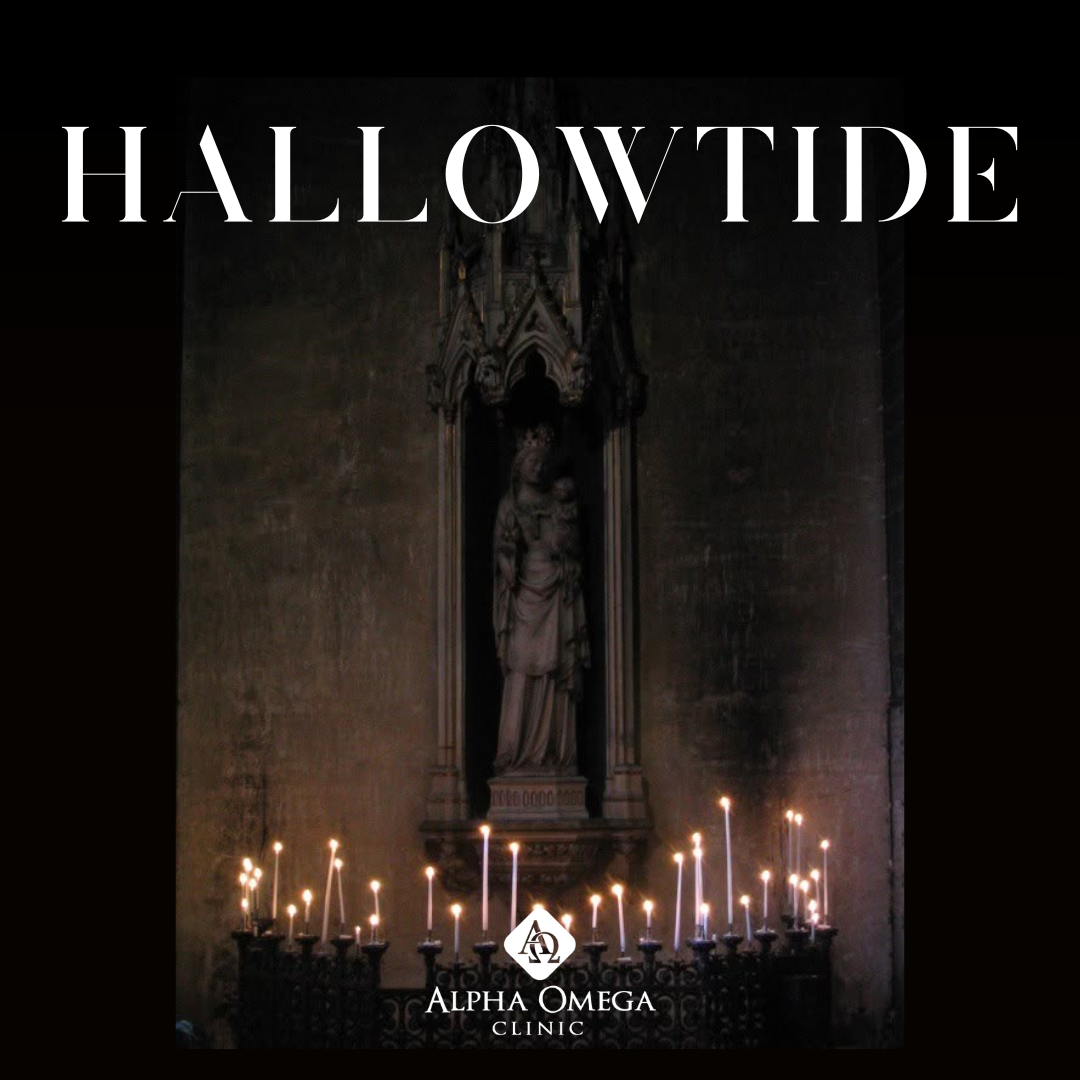🕯Hallowtide & The Human Psyche
(All Hallows’ Eve • All Saints’ Day • All Souls’ Day)
Hallowtide is the Church’s three-day meditation on death, holiness, and the mystery of what lies beyond this life. It’s a sacred pause in the liturgical year that invites us to face what modern life often tries to numb: mortality, grief, and our deep longing for meaning or purpose.
From a psychological perspective, this period mirrors an essential part of mental health—our capacity to face loss, pain, and fear without turning away. Avoidance, while understandable and so very human, keeps us stuck in the grip of our emotions. Remember, emotions are wonderful messengers but terrible masters. In the Church’s wisdom, she understands the need to help us break free from these patterns and provides us with repeated opportunities to face these existential realities throughout the liturgical year.
Our tradition seeks to sanctify that which overwhelms us. It teaches us that remembering the dead, praying for souls, and reflecting on our own finitude can orient us toward humility, gratitude, and hope. What we fear becomes less intense when we give it reverent attention and seek support to process this together.
For many, however, this season stirs anxiety—fear of death, fear of being alone, or the resurfacing of unprocessed grief. Coping begins not by suppressing these feelings, but by witnessing them with gentleness. Lighting a candle, journaling, or sitting in quiet prayer allows the body to metabolize fear without judgment. Spiritual practices like the Rosary or meditating on the Communion of Saints remind us we are never isolated; the living and the dead remain mysteriously connected in love. Facing fear through ritual can transform it into peace.
* The information provided is for self-enrichment and not intended to replace any necessary mental health treatment.
Want to support our work? Visit aoclinic.org/donat
Want more ways to receive this content? Follow us on Instagram or Facebook or subscribe to our e-newsletter.
Warmly,
Jonathan Dixon, LMFT
Alpha Omega





